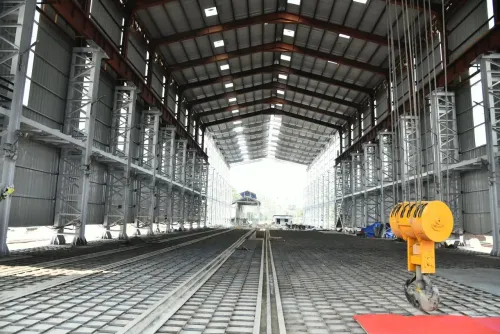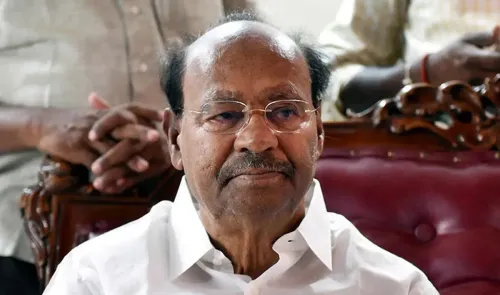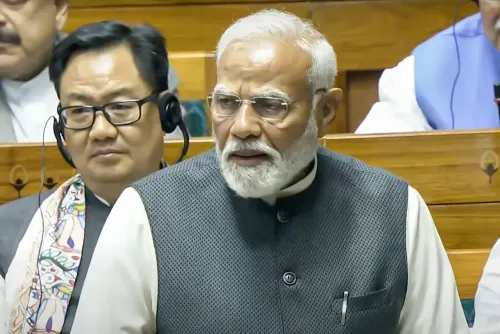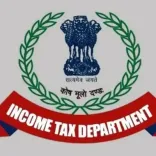What Is the Significance of April-May in India's Freedom Struggle?
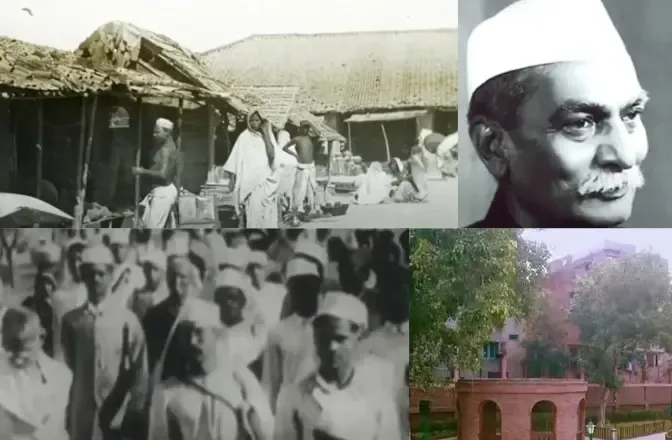
Synopsis
Key Takeaways
- April and May are pivotal months in India's freedom struggle.
- Gandhiji's Champaran Satyagraha was a significant non-violent protest.
- The Jallianwala Bagh massacre serves as a reminder of the atrocities faced.
- The contributions of Bihar's farmers were crucial to the independence movement.
- Honoring our freedom fighters helps inspire future generations.
New Delhi, April 27 (NationPress) Prime Minister Narendra Modi on Sunday emphasized the profound importance of the months of April and May in India's quest for independence, underscoring the sacrifices of brave freedom fighters during this pivotal period.
During the 121st episode of his monthly radio broadcast, 'Mann Ki Baat,' PM Modi remarked, "Today marks the final Sunday of April. We are on the brink of May. Let's travel back approximately 108 years to the year 1917. In these two months of April and May, a remarkable struggle for independence unfolded in our nation. The British atrocities were at their zenith. The exploitation of the impoverished, the marginalized, and farmers had reached unprecedented levels."
He shed light on the adversities faced by farmers, particularly in Bihar, where the British were coercing them into cultivating indigo, a crop that rendered their land infertile.
"In the fertile fields of Bihar, the British imposed indigo cultivation on farmers, leaving their lands barren, while showing no concern for their plight. It was under such dire circumstances that Gandhiji arrived in Champaran in 1917," stated the Prime Minister.
Reflecting on Gandhiji's arrival, he recounted, "The farmers shared their sorrow with Gandhiji, saying, 'Our land is perishing; we have no food to eat.' The anguish of countless farmers ignited a resolve in Gandhiji. This was the inception of the historic Champaran Satyagraha."
"Champaran Satyagraha marked Bapu's first significant experiment in India. His Satyagraha rattled the foundations of British rule, leading to the suspension of the law that compelled farmers to cultivate indigo. This victory instilled renewed confidence in the fight for freedom," he further highlighted.
PM Modi also honored Dr. Rajendra Prasad, India's first President, who played a crucial role in the Satyagraha. He encouraged the youth to read Rajendra Prasad's book, 'Satyagraha in Champaran,' which is vital for understanding the history of this struggle.
"Numerous unforgettable chapters of the freedom movement are linked to April. For instance, Gandhiji's 'Dandi March' concluded on April 6. This march, which began on March 12 and lasted 24 days, sent shockwaves through the British Empire. The Jallianwala Bagh massacre also occurred in April. The scars from this bloody chapter remain etched in the soil of Punjab," he remarked.
The Prime Minister also underscored the significance of May, as we approach the anniversary of the first battle for India's independence.
"In just a few days, on May 10, we will commemorate the anniversary of the first struggle for freedom. The spark ignited during that initial battle became a beacon for countless freedom fighters," he added.
Recalling the contributions of Bihar's freedom fighters, PM Modi noted the death anniversary of Babu Veer Kunwar Singh, a hero of the 1857 uprising, on April 26.
"The entire nation draws inspiration from this great freedom fighter of Bihar. We must preserve the everlasting legacies of countless freedom fighters. The energy derived from their sacrifices empowers our resolve for Amrit Kaal," PM Modi concluded.


